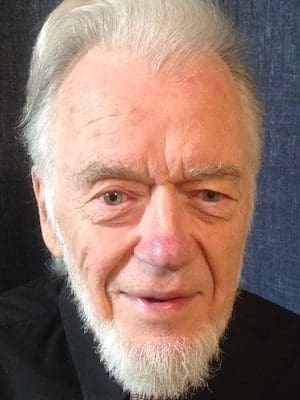Everyone has heard much about God’s love. But do we sufficiently comprehend the extent of that love? Probably not.
To begin with, it is important for us to realize that God’s love is not just for human beings. Perhaps Christianity through the centuries has been the most anthropocentric of all of the world’s religions.
There are, however, many references to God’s concern for nature in the Hebrew Bible that Christians call the Old Testament, and Christian environmentalists have increasingly called attention to those passages.
For example, Psalm 145:9 declares, “The Lord is good to all, and his compassion is over all that he has made.”
But have we really thought what it means for God to love all creation? Probably not sufficiently.
To address the lack of adequate concern for the natural world, back in 1983 at the Vancouver Assembly, the World Council of Churches (WCC) encouraged member churches to commit publicly to addressing environmental concerns as part of a common effort to promote justice, peace and the integrity of creation. That became known as the JPIC process.
Then in 1990, the WCC sponsored the World Convocation on Justice, Peace and the Integrity of Creation in Seoul, Korea. One study unit in this program was called “Creation as Beloved of God.”
Creation, the physical universe in its entirety and not just human beings, is loved by God. That was the important emphasis of the WCC in the 1980s and 1990s.
There has been a similar emphasis in the Catholic Church; Pope John Paul II’s message for New Year’s Day 1990 was titled “Peace with God the Creator, Peace With All of Creation.”
Reflecting upon that important message, Elisabeth A. Johnson, a noted Catholic theologian, wrote in 2001 about “God’s Beloved Creation.”
Most people seem to have long thought that the purpose of the natural world – the purpose of all the plants, animals and minerals in the world of nature – is primarily to supply the needs of human beings.
The creation story found in the first chapter of Genesis certainly does sound as if humans are the “crown of creation.”
When the first human couple was created, “God blessed them, and God said to them, “Be fruitful and multiply, and fill the earth and subdue it; and have dominion.” (Genesis 1:28).
The English words “subdue” and “have dominion,” however, may not be the best to convey what the biblical writer really had in mind.
To grasp that, maybe we need to consider more fully the implication of these words: “So God created humankind in his image, in the image of God he created them” (Genesis 1:27).
The idea of humans created in the image of God has nothing to do with how we look; it has everything to do with our capacity to be loving and caring as God is.
If God loves the physical world – and certainly God does – then we humans created in the image of God must love and care for the world also.
Because God loves all of creation – which includes the physical world, the world of sticks and stones, of plants and animals, the whole world of nature – it is incumbent on us human creatures to love and care for the natural world also.
My fear is that we are failing in that sacred task.
Leroy Seat was a missionary to Japan from 1966-2004 and is both professor emeritus of Seinan Gakuin University and pastor emeritus of Fukuoka International Church. A version of this article first appeared on his blog, The View from This Seat. It is adapted from the first section of a chapter of his unpublished book, “Thirty True Things Everyone Needs To Know Now,” and is used with permission. You can follow him on Twitter @LKSeat.
A missionary to Japan from 1966-2004, he is both professor emeritus of Seinan Gakuin University and pastor emeritus of Fukuoka International Church.

